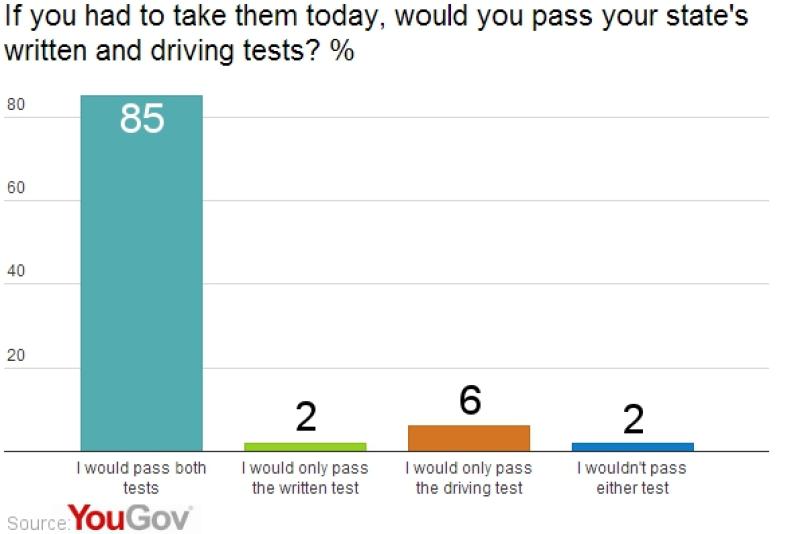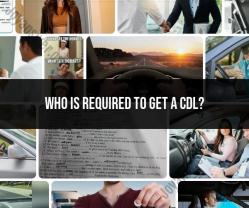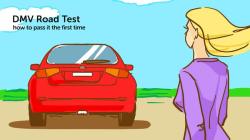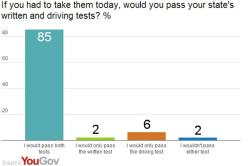Should the elderly re-test for their drivers licence?
The question of whether elderly drivers should undergo retesting for license renewal is a complex and debated issue. It involves balancing concerns about road safety with considerations of individual rights, independence, and potential age-related changes in driving abilities. Here are some perspectives on this matter:
Arguments in Favor of Retesting:
Safety Concerns: Advocates for retesting often emphasize the need to ensure that all drivers, including older adults, have the cognitive and physical capabilities necessary for safe driving. Age-related changes, such as declining vision, reaction time, and cognitive function, may impact driving skills.
Regular Assessments: Supporters of retesting argue that periodic assessments for all drivers, regardless of age, can help identify any changes in health or abilities that might affect safe driving. This approach avoids singling out older drivers and may be more equitable.
Adapting to Changes: Retesting could provide an opportunity for older drivers to adapt to any changes in their driving abilities. It may also serve as an educational tool, helping drivers stay informed about new road rules, technologies, and best practices.
Public Safety: Advocates stress the importance of protecting public safety by ensuring that individuals on the road possess the skills necessary to navigate increasingly complex traffic environments.
Arguments Against Retesting:
Individual Rights: Critics argue that mandatory retesting based solely on age may infringe on individual rights and independence. Age alone is not a reliable indicator of driving abilities, and many older adults continue to drive safely.
Stigmatization: Mandatory retesting for older drivers may contribute to the stigmatization of older adults, reinforcing negative stereotypes about aging. It may not account for the considerable variability in health and capabilities among older individuals.
Alternative Transportation: Rather than focusing on retesting, some argue for promoting alternative transportation options for older adults who may face mobility challenges. Providing convenient and accessible alternatives can address transportation needs without necessarily restricting driving.
Personalized Assessments: Instead of age-based retesting, opponents suggest a more personalized approach that considers an individual's health, cognitive function, and driving history. Periodic health checkups or assessments could be more targeted and effective.
Logistical Challenges: Implementing widespread retesting can pose logistical challenges, including increased demand for testing facilities, potential delays, and administrative burdens. These challenges need to be carefully considered when evaluating the feasibility of retesting programs.
Ultimately, decisions about retesting elderly drivers for license renewal involve considerations of safety, individual rights, and the practicality of implementation. Some jurisdictions have adopted age-neutral policies that focus on evaluating all drivers based on their abilities rather than their age. The development of fair and effective policies should take into account the diverse needs and circumstances of older adults while maintaining a commitment to road safety.
Is it advisable for older individuals to undergo re-testing for their driver's license?
Whether or not older individuals should undergo re-testing for their driver's licenses is a complex question with no single, definitive answer. There are strong arguments to be made on both sides, and the best approach likely involves a nuanced and individualized assessment rather than a blanket policy.
Arguments in favor of re-testing:
- Safety: Age-related physical and cognitive changes can affect driving skills, including vision, reaction time, and decision-making. Re-testing could identify individuals who may be at increased risk of causing accidents due to these declines.
- Public health: Traffic accidents involving older drivers can have significant consequences for individuals and society. Re-testing could potentially reduce these accidents and improve overall road safety.
- Fairness: Requiring periodic testing for all drivers, regardless of age, could be seen as a fair and equitable approach. It avoids discrimination based on age and ensures everyone meets minimum driving standards.
Arguments against re-testing:
- Individual autonomy: Mandatory re-testing can be seen as an infringement on the independence and mobility of older adults, especially those who rely on driving for daily activities. Losing their driving privileges could significantly impact their quality of life.
- Effectiveness: The evidence on the effectiveness of mandatory re-testing is mixed. While some studies suggest it may reduce accident rates, others show little to no effect. More research is needed to determine its true impact.
- Cost and logistics: Implementing and administering re-testing programs can be expensive and logistically challenging, especially in areas with limited resources.
Alternative approaches:
- Graduated driver licensing for older adults: This could involve tiered testing and driving restrictions based on age and performance, similar to the system for young drivers.
- Medical assessments and self-reported driving concerns: Combining vision and cognitive tests with self-reported concerns about driving can provide a more holistic assessment of driving fitness than a single road test.
- Driver education and training programs: Offering resources and programs that help older drivers stay safe and confident on the road could be a more effective and less intrusive approach than mandatory re-testing.
- Technological advancements: In-vehicle technology that assists with driving, like lane departure warnings and automatic braking systems, could offer additional safety measures for all drivers, including older adults.
Ultimately, the decision of whether or not to undergo re-testing for a driver's license should be made on an individual basis, taking into account factors like age, health, driving habits, and access to alternative transportation. Open communication between individuals, families, and healthcare professionals is crucial for making informed choices about driving safety for older adults.
It's important to remember that re-testing alone is not a panacea for preventing accidents involving older drivers. A comprehensive approach that addresses various factors and promotes safe driving habits for all ages is likely to be more effective in improving road safety for everyone.







